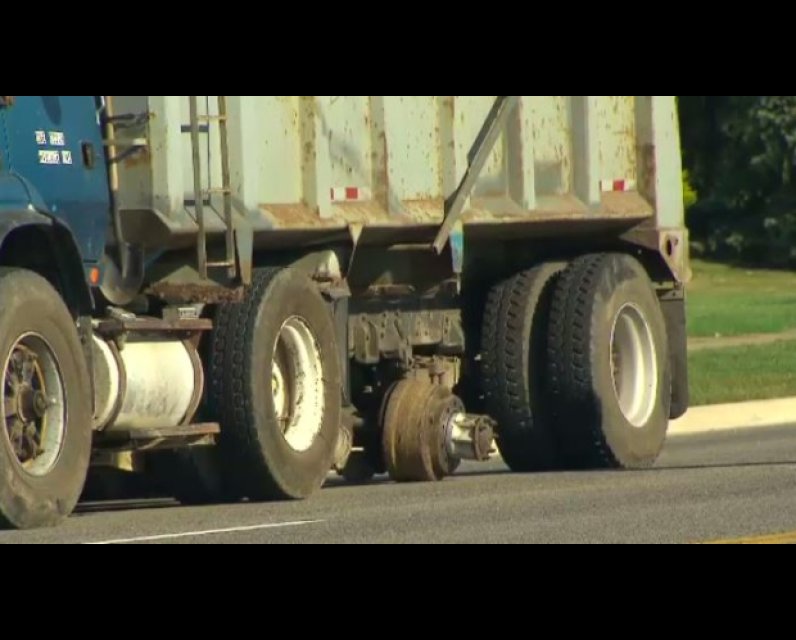Unpublished Opinions
Ray Gompf was born in Hamilton, Ontario in 1943 into a family that has been in Canada since the 1780’s. Ray was educated in Dunnville and Hamilton, Ontario. He entered the Royal Canadian Army Service Corps in 1961. He remained in the service of Her Majesty until 1973. Now retired, Ray was a long haul trucker and businessman in the trucking industry for the remainder of his career. There is not a spot in the United States or Canada that is unfamiliar to Ray.
Active in his beloved community of Britannia in Ottawa's west end, Ray was a founder of the Lighthouse Program, a program that opened the school after hours to a host of community activities, in the Regina Street Public School. He later chaired the committee that created a school feeding program to help underprivileged children start the learning day with a nutritious breakfast. In addition, Ray was instrumental in the creation of the first Neighborhood Watch program in the world.
Truck Wheels Off

By G. Ray Gompf, CD
If it has tires or teats, you will have trouble. That's an old adage having more truth than we would like.
Wheels separating from their vehicles has been a problem since the invention of the wheel. The old Romans used to have the wheels fall off their chariots regularly, and yes, often there were devastating results where somebody died. So, what we have in today's world isn't new, it isn't surprising but what it is, is needless, for the most part.
In today's world, we have some thousand years experience of working with metals, studying how different metals react with other metals. We know the tensile strength of various metals and what their breaking points are. We have the ability to recognize when metals are going to crack and break apart. We understand how the screw works. We know that by adding a "nut" to a bolt (screw) the connection will make it fairly easy to firmly attach, remove, replace when we want such attachment, removal, or replacement to occur. We also know how to examine that connection and re-tighten the nut to the bolt should it be failing to maintain it's tightness.
We know if the bolt portion of the connection is stretched, over torqued, it will fail to stay tight and will need to be replaced. We know, we have determined that any possibility of failure to hold fast, replacement is the only solution.
In the old days when nuts and bolts were put together using human power applied by a lever (wrench) the human could "feel" the tensile strength, could "feel" that magic sweet spot where the nut was as tight as possible without stretching the bolt. In more modern times we are now using air powered tools that make the job of tightening nuts on bolts easy, but can and do over torque nuts and bolts without even realizing the over torquing has taken place. We also have rules and regulations now, in view of the power of the air tools, to ensure precise torque levels are attained. Theoretically, if all the proper conditions are met, there is little or no chance of a wheel separating from it's vehicle.
Each nut and each bolt has a manufacturers stamp so knowledgable trained people can identify the various tensile strengths of that particular nut or bolt. There is usually never a problem with domestically produced nuts and bolts and they each react to their assigned tensile strengths. In an effort to reduce costs, some shops are buying, either with full knowledge of the origin of the product, or possibly not, off shore products that may or may not live up to billing.
The driver of every truck is obliged to do a complete inspection of the truck before and after each trip plus various inspections along the way as specified times. Frankly, each truck is supposed to be inspected every two hours. The trouble is the inspections are all visual. The driver can not possibly be expected to put a torque wrench on each and every nut or bolt on their own truck, every two hours. But government regulations put all the responsibility on the driver, not the owner of the truck, not the shop that makes the repairs.
The driver is trained to drive not repair. The truck driver, for the most part, has to know intimately the rules and regulations for 63 North American jurisdictions. The truck driver has to know how to predict how the car drivers around them are going to react to any situation -- hint, the car driver always can be predicted to do it wrong. The truck driver has to understand meteorology. The truck driver doesn't have the option of saying "this is too dangerous, I'm pulling over". The truck driver has to understand how keep going when there is a foot of snow on the road over thick ice. The truck driver has to understand how to drive through the moose herd safely without hitting any of them. The driver has to understand the laws of motion; momentum. The truck driver has to know how to be the company's customer service representative. The truck driver has to be an engineer without necessarily having that four year engineering degree from Queens University. The truck driver has to know how to diagnose problems with his machine and in most cases fix and keep going. The truck driver has to have the knowledge of an MBA without that additional two years university. But the truck driver doesn't even have a career path, doesn't have his trade recognized as a skilled trade. To the world, he's just some stupid moron who only drives a truck because he can't do anything else. After all, trained monkeys can drive trucks, can't they?
So, wheels fall of trucks. Again it's making big news because people are getting killed. Who knew? Again, the truck driver is the bad guy because he was supposed to prevent the wheel from falling off, even though, the best he can do is a visual inspection.
In the 90s there was a terrible wreck where the wheel came off a large truck on the 401 around Oshawa. The dual wheel setup went over the barrier and crushed the roof of an Oldsmobile killing two women. This particular wheel set was worked on at a Tire Shop in Mississauga less than an hour previously where the brake shoes were replaced and clearly the wheel mechanic hadn't properly installed the wheel set. The driver of this truck was charged and subsequently went to court where the prosecution called various witnesses to prove the truck driver hadn't done his job properly. There were questions on the mechanics ability but were discarded. A Metallurgist was HIRED by the prosecution to say the bearing were overheated and failed and that's what caused the wheel set to separate and fly off the truck. It was determined that the truck driver must not have checked to oil levels for the bearing on the wheel set and that was the cause, not that the mechanic hadn't done the installation correctly. The truck driver was subsequently fined by the province, the estates of the two women later sued and won judgement against the truck driver, who by this time had also passed away.
I personally had the bearings in my hand, the ones the court deemed to have failed because they'd been overheated. There were absolutely no blue markings on the bearing that would have indicating over heating; there were no signs of wear or failure in any way shape or form. In fact, it was put back into use after the court case completed and worked for at least another 160,000 kilometres of which I personally can attest.
It was this particular court case that reduced my faith in our justice system to near zero when witnesses can be HIRED to provide "educated" testimony rather than honest facts.
The fact is wheel offs need not occur. Those that do happen, happen because someone, either knowingly or not, bought a product that wasn't what it was purported to be. Certainly, truck drivers can not be held totally responsible for the use of ineffective products bought and used by other knowledgable people. We have to be able to trust the people who work on our vehicles to be doing their job properly using the products that are right for the job.
Another personal experience. I had to truck a very heavy load into a place where no truck should have been expected to go. I subsequently twisted the drive shaft and had to have it replaced. Twisting a drive shaft isn't all that rare. The shop where I had the drive shaft replaced unwittingly used the wrong nuts and bolts to hold the drive shaft in place. No, I'll correct that, they used the nuts and bolts with the proper tensile strength markings but in spite of being correctly marked, there was a failure. I went with this new drive shaft from Kitchener, Ontario to Scranton, Pennsylvania where the drive shaft hanger separated from my truck and left the drive shaft laying on the road. I was able to "chain" the drive shaft up and limp into a shop for repairs. Fortunately, the shop in Kitchener took responsibility for the "wrong" bolts and paid the bill at the shop in Scranton. The fact is that it could have been a lot worse. The drive shaft could have dug into the pavement and flipped the truck and trailer on the spot. Thankfully, the worst case scenario didn't happen and I'm alive to tell the story.
Wheel offs are a serious matter and there is no single solution but I can tell you with absolute certainty, it's not the truck drivers' sole responsibility.
G. Ray Gompf, CD
Ottawa, ON



Comments
Be the first to comment